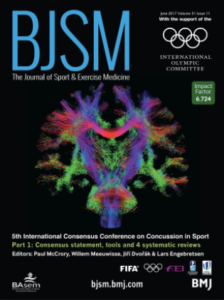Objective: King-Devick (K-D) is becoming a popular screening test for sport concussion. Rapid number naming may be impaired in developmental dyslexia and other learning disabilities (LD). The aim was to study the interaction of age and LD in K-D in adolescence. The hypothesis was that those with LD perform more poorly on the test regardless of age.
Design: A case-control, cross-sectional nation-wide study.
Setting: Pre-season 2015–16 baseline tests in all junior teams in the Finnish ice hockey League.
Participants: A total of 805 male adolescents aged 12–21 (divided in 7 age groups), 75 of them reported LD.
Outcome measures: The K-D performance was measured twice. Time in the three subtests was combined to produce a sum score. Sum scores, and their difference, were used as outcome measures.
Main Results: In the youngest age group the mean of the K-D second trial was 49.7 (48.3–51.0, 95% confidence intervals) and in the oldest age group 44.7 (42.9–46.5). In a two-way ANOVA those with LD performed poorer (p=0.014, ηp²=0.008) but there was no interaction between age and LD. Similarly, a repeated analysis of covariance yielded a significant main effect for the trial (p<0.001, ηp²=0.042) and for LD (p<0.001, ηp²=0.026) but not for their interaction when the effect of age was controlled.
Conclusions: Adolescent players improve their performance in K-D with age, but those with learning disabilities remain slower despite maturation. If K-D is used as a single test for screening, and no baseline data is available, this needs to be recognised.
Summary Points:
- Adolescents improve their performance in K-D Test with age underscoring the need for annual baseline establishment.
- Children with learning disabilities perform worse on K-D Test at baseline highlighting the limitations of using normative data and the importance of using individualized performance for comparison both for sideline detection and clinical monitoring of concussion.

